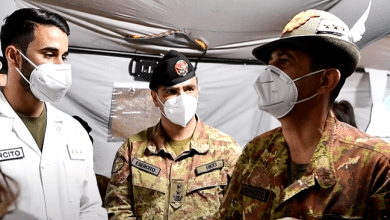
A Colleague has sent us for information the coordinated and continuous Collaboration Agreement with which he will start his ISF activity in September
Among other things, the contract specifies:
In the execution of this contract, you will be free to determine the aspects and methods of carrying out your business with the maximum autonomy and in the absence of any subordination constraint (in particular, in the absence of any time or attendance obligation), firm  without prejudice to compliance with the legislation referred to in Legislative Decree 219/06 and the descending and connected regulations, as well as the Assogenerici Code of Conduct, the contents of which you confirm that you know well. In particular, he confirms that he is aware of the FSI's obligation to work for a single pharmaceutical company.
without prejudice to compliance with the legislation referred to in Legislative Decree 219/06 and the descending and connected regulations, as well as the Assogenerici Code of Conduct, the contents of which you confirm that you know well. In particular, he confirms that he is aware of the FSI's obligation to work for a single pharmaceutical company.
You are also aware that, pursuant to theart. 122 Legislative Decree 219/06, (…omissis) Srl has the burden, sanctioned in the event of  non-compliance, to communicate to AIFA the number of doctors visited in the previous year as well as the average number of visits made. You are also aware of how the recent regulatory innovations, also on a regional basis, have further regulated the number of visits and the methods for carrying out medical and scientific information at a local level, with particular reference to the discipline of free samples, dictated by theart. 125 Legislative Decree 219/06 and related regional regulations, attached hereto, whose updates (... omitted) Srl si undertakes to send it to you.
non-compliance, to communicate to AIFA the number of doctors visited in the previous year as well as the average number of visits made. You are also aware of how the recent regulatory innovations, also on a regional basis, have further regulated the number of visits and the methods for carrying out medical and scientific information at a local level, with particular reference to the discipline of free samples, dictated by theart. 125 Legislative Decree 219/06 and related regional regulations, attached hereto, whose updates (... omitted) Srl si undertakes to send it to you.
In order to allow the company to comply with these provisions, by the fifth of each month you undertake to send (…omissis) Srl a communication (so-called «test download») with attached written requests for free drug samples (dated, stamped and signed) carried out by the doctors.
The assignment takes the form of a freelance consultancy disciplined by the articles 2229 et seq. Cc and other laws applicable to the Collaboration.
This contract has a duration of 12 months and will start on 01/09/2019 with the right of withdrawal for each party as provided for in art. 10 of this contract
For each activity covered by this contract, none excluded, also taking into account the related charges at your expense, Srl will pay you a total fixed amount of Euro ....00 (.../00) + VAT on an annual basis gross of applicable tax and/or social security withholdings
 The payment of the fee will take place, as requested by you, in 12 installments of Euro ....00 + VAT against the presentation of your invoices, which must reach (...omissis) Italy Srl by the twenty-fifth day of the second month of each two months considered.
The payment of the fee will take place, as requested by you, in 12 installments of Euro ....00 + VAT against the presentation of your invoices, which must reach (...omissis) Italy Srl by the twenty-fifth day of the second month of each two months considered.
Variable remuneration of Euro … (…/00) + VAT based on the achievement of a quality targets (Annex B) (to be paid monthly on the basis activity reports sent by the Collaborator). (…omissis) Srl will also pay you an additional fee variable compensation commensurate with the sales of the Products referred to in Annex A, carried out by the wholesaler to pharmacies located in the Area, on the basis of the indications given in Annex C. Within sixty days from the end of each quarter, (…omissis) Srl will notify you of the quantities of drugs sold and the amounts paid on the basis of the information provided.
The variable portion of your remuneration will be calculated according to the surveys carried out by the Company in the reference sector. As far as the surveys are concerned, the findings (and consequently the invoice that you will have to issue) refer to the data collected in the second month preceding the one in which the billing takes place.
The expenses that you may incur in carrying out the activities covered by this contract, including travel expenses, are, notwithstanding the provisions ofart. 2234 code civ., at your full expense. In any case, the total remuneration referred to in the previous article 7 was determined taking into account the charges normally resulting from the type of activity.
The Consultant will carry out the task, which is the object of the contract, under his own responsibility and for this reason he will undertake to compensate for any damage, to people and things, which may occur due to a fact attributable to him.
The Consultant, in carrying out the activities covered by this contract, also undertakes to behave in compliance with the Code of Ethics adopted by the AEC Holder
... The non-compliance by the Consultant in the performance of its activities with any of the provisions of the Code of Ethics will result in serious non-fulfilment of the obligations under this contract and may legitimize Srl to terminate the same pursuant to and for the purposes of theart. 1456 of the Civil Codewithout prejudice to compensation for any damages caused.
What is a Co.Co.Co.
The coordinated and continuous collaborators (so-called co-co-co) are also called workers parasubordinates, because they represent an intermediate category between self-employment and dependent work.
In fact, they work in full operational autonomy, excluding any bond of subordination, but within the framework of a unitary and continuous relationship with the client of the work. I am therefore functionally integrated into the corporate organization and can operate within the production cycle of the client, who is recognized as having the power to coordinate the worker's activity with the needs of the company organization (INPS). The Co.Co.Co. worker is repaid with a fee  monthly without fixed working hours or, better, according to a coordinated activity without time constraints, if the customer requests that a working time be respected, the worker will no longer be a collaborator but an employee. It is the work client who decides on the places and times of work which the worker must then, by definition of the co.co.co, organize in full autonomy for the performance of the service. As long as the client gives the collaborator a place and a time, hetero-organization is already triggered. The collaborator is not subject to managerial, disciplinary and control powers of the client.
monthly without fixed working hours or, better, according to a coordinated activity without time constraints, if the customer requests that a working time be respected, the worker will no longer be a collaborator but an employee. It is the work client who decides on the places and times of work which the worker must then, by definition of the co.co.co, organize in full autonomy for the performance of the service. As long as the client gives the collaborator a place and a time, hetero-organization is already triggered. The collaborator is not subject to managerial, disciplinary and control powers of the client.
On the other hand, when the collaboration is mainly personal and continuous and it is the client who defines the places and times of work, we speak of subordinate work and not of Co.Co.Co.. However, there are cases in which the automatic application of the discipline of subordinate work is excluded: this is the case of intellectual professions for which enrollment in a register is required (lawyers, engineers, architects, etc.) and it is probably no coincidence that the above contract mentions theart. 2229 of the civil code which concerns contracts for this type of professionals. Just that the ISF does not have a Register.
There provision of a co.co.co. must therefore be characterized by:
- continuity: the collaborator is engaged in favor of the client in a period of time which leads to the exclusion that the performance is merely occasional or instantaneous,
- personality: the collaborator can make use of his own means, but the instrumental contribution must be marginal with respect to the pre-eminence of the personal contribution,
- coordination: the collaborator must compare himself with the client's corporate organization and coordinate with the latter's needs,
- autonomy: the collaborator must self-determination in carrying out the activity object of the contract. In particular, in order to exclude the existence of subordination, the new law text establishes that the methods of execution of the performance they do not have to be organized by the client also with reference to the times and place of work.
The law does not provide any indication either as to the form of the contract nor about the manner of progress of the report, which, therefore, are left to the determination of the parties, in compliance with the general principles of correctness And good faith provided for by the civil code.
The law provides that from January 1, 2016, to the collaborative relationships, even if they take the form of continuous services of exclusively personal work, the discipline of subordinate work, so far as the execution methods are organized by the client also with reference to the times and place of work. The consultancy contract, or the provision of intellectual work referred to in art. 2229 of the civil code and following, cited in the above contract, is a typical obligation of means in which, unlike an obligation of result, the ISF professional undertakes to carry out a specific activity without however guaranteeing the client the "expected result".
However, many commentators state that the assessment of the hetero organization does not involve the conversion of the collaboration agreement in a subordinate employment contract: the collaborator will simply be granted the protections at a regulatory, salary and contribution level typical of subordination.
In order to promote the job stabilization and ensure proper use of Job contracts autonomous, the legislator has introduced a real amnesty for previous collaboration relationships, including projects and services performed by VAT holders.
From January 1, 2016 employers hiring with permanent employment contract subjects already part of coordinated and continuous collaboration agreements (even by project) And VAT holders, with whom they have entertained self-employment relationships, will benefit from the extinction of the offences administrative, contributions And tax connected to the possible erroneous qualification of the previous employment relationship. It should be specified that the offenses ascertained by the supervisory bodies before hiring the employee.
The Co.Co.Co contract for ISF
Now in the above contract it seems to us that there are some contradictions:
1- According to the Contract, the ISF collaborator/consultant must scrupulously observe the Assogenerici Code of Conduct which states in art. 1.2 states that the marketing authorization holder company is responsible for the information and promotional actions carried out on its own products and on those for which it holds the sales concession, even if this has been prepared and/or carried out by third parties (consultants, agents,  agencies, etc.). However, the Contract specifies that the consultant ISF "will carry out the task, object of the contract, under his own responsibility and for this reason he will undertake to compensate for any damage, to people and things, which should occur due to a fact attributable to him". But why is the Code of Conduct of Assogenerici cited and not that of Farm industry? Perhaps because in that of Farmindustria it is said that the "scientific representative of the drug must not have any connection with the use of the drug, even if not remunerated and that of Assogenerici, no
agencies, etc.). However, the Contract specifies that the consultant ISF "will carry out the task, object of the contract, under his own responsibility and for this reason he will undertake to compensate for any damage, to people and things, which should occur due to a fact attributable to him". But why is the Code of Conduct of Assogenerici cited and not that of Farm industry? Perhaps because in that of Farmindustria it is said that the "scientific representative of the drug must not have any connection with the use of the drug, even if not remunerated and that of Assogenerici, no
2. The cornerstone of the consultancy contract is autonomy and it is specified that the methods of execution of the performance they do not have to be organized by the client also with reference to the times and place of work. The contract shown above reaffirms the autonomy of the ISF, only to then quantify the variable part of the salary (shown in the attachment not displayed) to the number of doctors visited (in practice a total of doctor's stamp on the discharge of essays). Which arouses the suspicion that it contradicts the autonomy of times and places of work.
3- The autonomy of the ISF is suspected to be strongly compromised even when it comes to the "activity reports sent by the Collaborator (Annex: A)” on the basis of which a variable part of the salary will be disbursed, probably incompatible with the worker's autonomy, but which can be configured as subordinate work to all intents and purposes.
4- The company's control over the ISF also manifests itself when the company says that by law it must notify AIFA the number of doctors visited in the previous year as well as the average number of visits made by the collaborator. Therefore the client company demands that the ISF collaborator must communicate the number and names of the doctors visited and, again by law, send the wise requests. And, thus, the control is complete. But it is one thing to communicate the total number of doctors to make an average, another is to communicate the names and areas of the doctors visited.
5- A part of variable compensation will be commensurate with the sales of the Productsalbeit in an additional form. As is known, the activity of the ISFs is not linked to sales.
6- It would be interesting to know if the client company has a Scientific Service, as required by art. 122 And 126 of Legislative Decree 219/06, on which the ISF must depend and a person in charge of pharmacovigilance (art. 131) to whom the ISF must report the adverse effects observed by the doctors. And if so, do these managers have the appropriate qualifications imposed by law?
7- Finally, it would be interesting to know how the legal provisions on the number of doctors visited to be communicated to AIFA and the samples of drugs delivered with self-employment which does not impose controls are reconciled. How then is self-employment reconciled with the Scientific Service on which the ISF "must" depend?
As a final consideration, we must not hide from pointing out that these types of self-employed contracts are all designed to circumvent the law, both the one that regulates the activity of the ISF and those of work with false VAT numbers. Companies that still use this type of contract do so to ensure a low-cost workforce by saving on taxes and social security contributions. Aware of the fact that young people need to earn something to create a minimum of economic independence and that they accept, just to pay their dues.
But if AIFA is absent…
Related news: Assogenerici Code of Conduct





